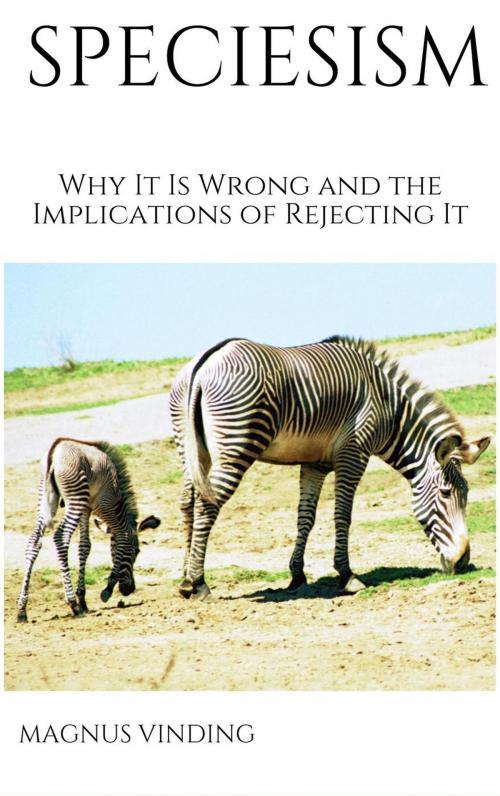Speciesism: Why It Is Wrong and the Implications of Rejecting It
Nonfiction, Science & Nature, Nature, Animals, Animals Rights, Environment, Environmental Conservation & Protection, Religion & Spirituality, Philosophy, Ethics & Moral Philosophy| Author: | Magnus Vinding | ISBN: | 9781513055985 |
| Publisher: | Magnus Vinding | Publication: | May 2, 2015 |
| Imprint: | Language: | English |
| Author: | Magnus Vinding |
| ISBN: | 9781513055985 |
| Publisher: | Magnus Vinding |
| Publication: | May 2, 2015 |
| Imprint: | |
| Language: | English |
The aim of this book is to examine our speciesism. This examination consists of two separate parts, where the first part shows why speciesism is unjustifiable, and hence why it must be rejected, while the second part examines the practical implications of this rejection. This latter examination is bound to be far from exhaustive, yet by merely pointing out the most basic and most important implications of the rejection of speciesism, we see more than a few ways in which our behavior and attitudes should change, and change profoundly.
"Humans hurt, harm and kill billions of sentient beings. We routinely treat nonhuman animals in ways that would earn the perpetrators a life sentence in prison if the victims were humans of comparable sentience. Speciesism: why it is wrong and the implications of rejecting it makes disturbing reading. Magnus Vinding makes a compelling case for a moral revolution in human behaviour toward nonhuman individuals. Highly recommended."
— David Pearce, co-founder of World Transhumanist Association / Humanity+ and author of The Hedonistic Imperative.
Most people agree that discriminating against someone on the basis of gender, sex or skin color is morally objectionable, but what about species membership? Speciesism: why it is wrong and the implications of rejecting it makes a compelling case that this form of discrimination has no justification either, and addresses the most significant implications. These include both the rejection of animal exploitation and the rejection of the idea that we have no reason to help nonhuman animals in need of aid, including when they are suffering in the wild for natural reasons. This book is likely to challenge many of our assumptions, and will encourage us to think deeper about the moral consideration of nonhuman animals.
— Oscar Horta, professor of moral philosophy at University of Santiago de Compostela, co-founder of Animal Ethics.
The aim of this book is to examine our speciesism. This examination consists of two separate parts, where the first part shows why speciesism is unjustifiable, and hence why it must be rejected, while the second part examines the practical implications of this rejection. This latter examination is bound to be far from exhaustive, yet by merely pointing out the most basic and most important implications of the rejection of speciesism, we see more than a few ways in which our behavior and attitudes should change, and change profoundly.
"Humans hurt, harm and kill billions of sentient beings. We routinely treat nonhuman animals in ways that would earn the perpetrators a life sentence in prison if the victims were humans of comparable sentience. Speciesism: why it is wrong and the implications of rejecting it makes disturbing reading. Magnus Vinding makes a compelling case for a moral revolution in human behaviour toward nonhuman individuals. Highly recommended."
— David Pearce, co-founder of World Transhumanist Association / Humanity+ and author of The Hedonistic Imperative.
Most people agree that discriminating against someone on the basis of gender, sex or skin color is morally objectionable, but what about species membership? Speciesism: why it is wrong and the implications of rejecting it makes a compelling case that this form of discrimination has no justification either, and addresses the most significant implications. These include both the rejection of animal exploitation and the rejection of the idea that we have no reason to help nonhuman animals in need of aid, including when they are suffering in the wild for natural reasons. This book is likely to challenge many of our assumptions, and will encourage us to think deeper about the moral consideration of nonhuman animals.
— Oscar Horta, professor of moral philosophy at University of Santiago de Compostela, co-founder of Animal Ethics.















